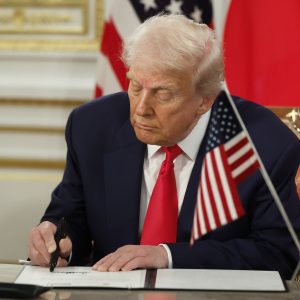India’s 77th Independence Day is marked by disturbing trend of persecution of minorities
Although India claims to be the world’s largest democracy, a disturbing trend of rising communal tensions has made the situation in the country deeply worrying.
Muslim Network TV
NEW DELHI, India – India’s 77th Independence Day, which was observed on Tuesday, is definitely an event to celebrate, but also a reflection on the path the country has taken, more so, post 2014.
The era is marked by a disturbing trend of persecution of minorities and rampant human rights abuses.
Prime Minister Narendra Modi opened the celebrations with a speech from the ramparts of the famed Red Fort, the seat of power of the Muslim Mughal Empire.
He cited demographics, democracy, and diversity as India’s strengths.
But almost everybody will agree that both democracy and diversity are under great pressure in India.
Modi mentioned Manipur but left unmentioned recent anti-Muslim riots on the outskirts of the capital, New Delhi, in the high-tech city of Gurugram, and rampant hate speech by members of his Hindu nationalist party.
His government had homes and businesses of Muslims arbitrarily destroyed in the outskirts of Gurugram for merely accusing them of stoning a Hindu procession.
However, in a separate event, Chief Justice of India DY Chandrachud pointed to arbitrary arrests and criticized the threat of demolitions.
Speaking on the Supreme Court premises, the chief justice said institutions such as the media, bureaucracy, political parties, and non-profit organizations play an important role in developing a constitutional democracy.
– Institutions under pressure
All of these institutions have been under stress in India since 2014, when Modi took office.
Even though India claims to be the world’s largest democracy, the disturbing trend of increasing communal tensions has made it a worrisome country.
According to the human rights group Sabrang India, there has been a recent disturbing trend of concerted efforts to persecute Muslims and marginalize them through various means, including economic boycotts and home demolitions.
In the past six months, Sabrang has documented 428 incidents of hate speech nationwide, including 85 in the western state of Maharashtra, followed by 59 in Uttar Pradesh, 48 in Madhya Pradesh, and 44 in Rajasthan.
According to a recent report by the Delhi-based volunteer group ANHAD, hate speech and hate crimes are predominantly directed against Muslims. No less than 73.3% of all hate speech was directed against Muslims, and in 26.7% of cases, it was directed against Christians.
Moreover, there has been a gradual shift over the years where hate crimes against Muslims began to outnumber hate speech incidents, suggesting that hate speech has contributed to the rise in hate crimes against Muslims in India.
According to government reports reported by Outlook India, there have been incidents of violence against Christians since 2014, resulting in the destruction of 395 churches and more than 5600 homes, and the looting of more than 600 villages.
The death toll is estimated at over 500, with many Christian families burned alive. In addition, thousands of Christians were forcibly converted to Hinduism or subjected to further violence.
Attacks on Christians have increased since 2014, with anti-Christian hate crimes doubling, according to the Evangelical Fellowship of India.
A particularly horrific incident occurred on October 3, 2021, when a prayer house in Roorkee was reportedly vandalized by a mob of about 250 people. The attack was triggered by allegations of illegal conversions against Pentecostal evangelist Prio Sadhna Potter and those present at the site.
On the day when India celebrates the anniversary of its independence, it is necessary to use all means to make the rulers respect diversity and democracy.
India is a large country that has now surpassed China in population, and could prove dangerous not only to the South Asian region but to the entire world if hatemongers are given a free hand. The more the minorities are forced to live under stress, the more it has the potential to make the region unstable.
Those investing in money and technology in India must also invest in promoting democratic values in the country as well.










